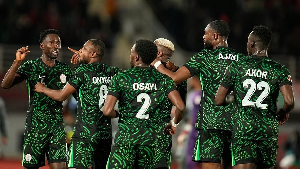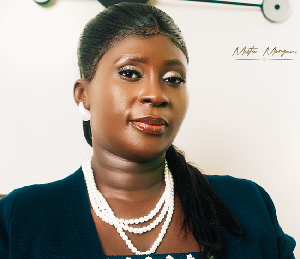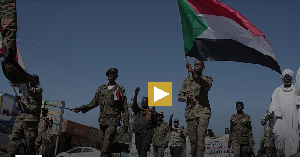The political, religious and gender tolerance of Ghanaians make the country an “important example of tolerance in West Africa,” U.S. Ambassador to Ghana, Robert P. Jackson, has said, adding that the West African country’s forthcoming polls at the end of the year will put that reputation to the test.
At an annual Iftar (breaking of the Muslim fast) ceremony on Wednesday June 22 at his residence in Accra, with the Muslim community and members of other faiths, Mr Jackson said: “In my short time in Ghana, I have seen that Ghanaians are firmly committed to peaceful expression and free practice of religion”.
The event was attended by the National Chief Imam, Sheikh Osmanu Nuhu Sharubutu as well as the Christian Clergy.
Mr said: “This past March, on my first trip to the Ashanti and Northern Regions, I met with Muslim leaders in Kumasi and Tamale. We had productive discussions on promoting development and peaceful elections. I want to thank Sheikh Sharubutu for praying for peaceful elections and for calling publicly for a tolerant political climate”.
He said Ghana’s reputation as a tolerant nation will be put to the test during the upcoming general elections toward the end of the year and urged religious leaders to drum home the need to maintain peace throughout the polls.
“We will be tested, especially in the coming months. We must stand firm when people try to divide us. As leaders, we must repeat at every opportunity that we stand for peace.
“I say this with both our countries in mind. We have seen divisive rhetoric on both sides of the Atlantic. I want to assure you that inclusion across lines of faith, gender, and ethnicity remains a central value of the United States. Ghana’s commitment to these same ideals makes it an important example of tolerance in West Africa. We are fortunate to live in societies where acceptance and tolerance of diversity are of high importance. This is a standard we must always work to preserve,” Mr. Jackson observed.
Below is the Ambassador’s full speech
National Chief Imam, Sheikh Osmanu Nuhu Sharubutu
Honourable Ministers of State;
Your Excellencies, Members of the Diplomatic Corps;
Members of the Clergy;
Colleagues from the U.S. Embassy;
Distinguished Ladies and Gentlemen.
Good evening, everyone. Assalaam alaykum. May peace be upon you.
Babs and I are happy to welcome you here this evening in observance of the holy month of Ramadan. Tonight, we honor the traditions of one of the world’s great religions. It is a time when more than 1.5 billion Muslims around the world commit themselves to spiritual renewal. It is a time when we are reminded of our duty to our fellow man.
I attended my first Iftar in Senegal more than a decade ago. Since then, I have hosted or participated in dozens in Senegal, Morocco, and Cameroon.
In my short time in Ghana, I have seen that Ghanaians are firmly committed to peaceful expression and free practice of religion. This is a principle upheld by all the faith groups present here this evening.
Indeed, the fact that we are able to bring people from different religions together this evening reminds us that the tenets of peace, justice, and caring for one another are central to all of our faith traditions.
Tonight, as we break the fast, we are joined by Muslims in Ghana, in the United States, and around the world. However, we must not forget those who are unable to celebrate Ramadan in their homes, or with their families, due to conflict and strife.
This past March, on my first trip to the Ashanti and Northern Regions, I met with Muslim leaders in Kumasi and Tamale. We had productive discussions on promoting development and peaceful elections. I want to thank Sheikh Sharubutu for praying for peaceful elections and for calling publicly for a tolerant political climate.
We will be tested, especially in the coming months. We must stand firm when people try to divide us. As leaders, we must repeat at every opportunity that we stand for peace.
I say this with both our countries in mind. We have seen divisive rhetoric on both sides of the Atlantic. I want to assure you that inclusion across lines of faith, gender, and ethnicity remains a central value of the United States. Ghana’s commitment to these same ideals makes it an important example of tolerance in West Africa. We are fortunate to live in societies where acceptance and tolerance of diversity are of high importance. This is a standard we must always work to preserve.
I want to thank you all again for coming tonight to share in this evening of fellowship. I hope to continue working with all of you in the promotion of tolerance and peace. May you and your families have a blessed Ramadan.
I’d like to turn now to Sheikh Sharubutu for his remarks. Sheikh. . .
Thank you, Sheikh Sharubutu, for your insightful words. And thank you, Sheikh Aremeyaw for the interpretation.
Let me close by thanking you all again for coming this evening to join in fellowship with me and my colleagues, with each other, and with the leaders of Ghana’s many faith traditions. Babs and I have endeavored to create a memorable meal that combines different traditions and that we trust will be pleasing to the palate.
General News of Monday, 27 June 2016
Source: classfmonline.com













